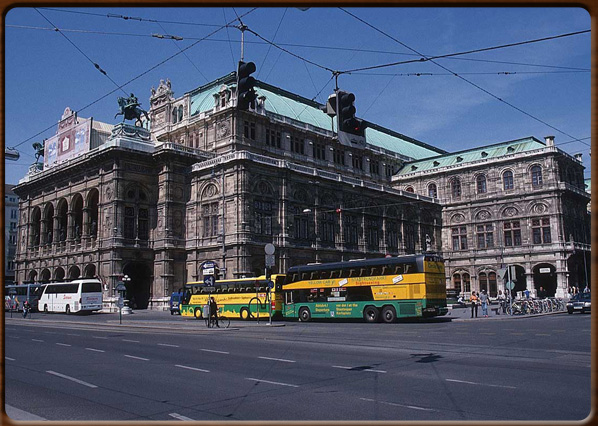
G. Mahler

Opera Haus of Wien


No video
Gustav Mahler (Kaliŝtê in Bohemia, 1860 – Vienna, 1911) was a Bohemian-born Austrian composer and orchestra conductor. He started studying music at the age of 5 and in 1872 moved to Vienna to attend the city’s Conservatoire.
Two years later, at the age of just 14, he started his career as orchestra conductor. He was to conduct all of the best orchestras in Mitteleuropa in Ljubljana, Kassel, Prague, Leipzig, Budapest and Hamburg.
In 1898 he returned to Vienna as conductor of the Vienna Opera until 1907, when he moved to New York at the height of his fame. There he conducted for the last time in February 1911, shortly before returning to Vienna owing to ill health. He died in Vienna of a heart attack three months later.
Mahler composed some ten symphonies, the last of which was unfinished, and many lieders. His chamber music includes a piano quartet in A minor and a scherzo in C minor.
His earlier works have a melody and rhythm typical of classic Brahms and Schumann, but also a sense of anguish in the Expressionist style.
Indeed, it took a long time before musicologists could ‘place’ Mahler, since he pushed tonality to the limits and often obtained forced, though suggestive, results. It has been said that Mahler reaches the neighbouring town not by taking the shortest, most direct route, but by travelling all around the world to get there.
Mahler and his music is linked to Venice thanks to Thomas Mann’s novel, Death in Venice, where the main character is called after him and even resembles him physically.
Luchino Visconti, the film director responsible for the film adaptation, used an adagetto from Mahler’s Fifth Symphony as his theme music.
1800 - 2000 - - rev. 0.1.5